Happy Libraries Week to all! On the first Wednesday of every month, GWL team members share what we’ve read recently at our Book Picnic. In the current climate, our Book Picnic takes place remotely, giving all of us some valuable social interaction, and providing us with many, many excellent book suggestions…
Wanderers: A History of Women Walking by Kerri Andrews
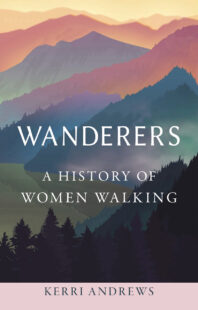 Recommended by Wendy, this remarkable and unique book focuses on ten different women in history who have enjoyed walking as a recreational pursuit and why, whether it be for freedom, pleasure, or identity. Walking is often considered a male pursuit, and Wendy points out that one usually pictures a man “walking the streets of London, philosophizing”. Instead this book offers an deeply contemplative alternative view of the history of walking and encourages women to reclaim the activity.
Recommended by Wendy, this remarkable and unique book focuses on ten different women in history who have enjoyed walking as a recreational pursuit and why, whether it be for freedom, pleasure, or identity. Walking is often considered a male pursuit, and Wendy points out that one usually pictures a man “walking the streets of London, philosophizing”. Instead this book offers an deeply contemplative alternative view of the history of walking and encourages women to reclaim the activity.White Fragility: Why It’s So Hard for White People to Talk About Racism by Robin DiAngelo
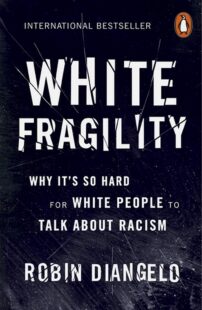
Recommended by Annie, this groundbreaking book explores the defensiveness of white people when it comes to discussing racism. “White fragility” refers to the anger, fear, guilt and argumentative behaviors exhibited by white people when they are confronted about their part in upholding racial inequality. This book suggests that rather than reacting with defensiveness, white people should pause, reflect and examine themselves and how they can challenge discrimination and help work towards a more fair and just world. Annie recommends this book to start with if you are trying to persuade someone to reflect on themselves and their own perspective on race.
The Space Between Black and White by Esuantsiwa Jane Goldsmith
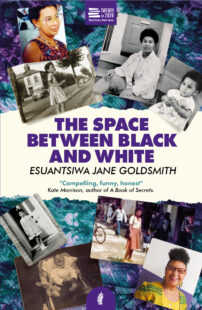
Recommended by Anna, this compelling memoir sheds light on the life of feminist and political activist Esuantsiwa Jane Goldsmith. Goldsmith grew up in a working-class neighborhood in 1950s South London, the mixed-race daughter of a white single mother and a Ghanaian father she never knew as a child. Full of witty anecdotes and perceptive stories, this memoir paints a vibrant picture of her life experiences and the injustices she has fought and campaigned against. Anna felt this book was powerful and well written, remarking that Goldsmith is a very insightful person. (Along with this, Anna also recommends the short BBC documentary Black and Scottish)
Also recommended by Anna, this book covers the experiences of a midwife in a rural community in Nova Scotia. Beginning with her apprenticeship with a French herbalist and healer, the book follows her struggles during difficult births, illnesses, and deaths, and the intrusion of modern medicine and birthing methods that threatens her livelihood. Anna recommends this book to anyone interested in healing and herbalism.
La Femmina Nuda by Elena Stancanelli
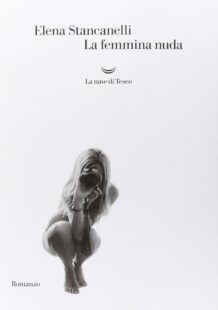
Recommended by Julia, this book was first published in Italian and is also available in German, Dutch, and Spanish. The narrative focuses on how self-destructive and obsessive a person can be when a long term relationship finishes. Julia says that it is perhaps not the best story to read during quarantine because the main character doesn’t leave the house as her mental health deteriorates. However, as it is a quickly told story delivered in the form of letters sent to a friend a year later, Julia felt the format is able to “put a bit of distance between you and the story”.
The Unforgetting by Rose Black
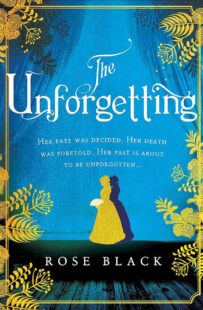
Recommended by Elaine, The Unforgetting is a haunting Victorian novel about obsession, control, loss, and illusion. Sold by her father to a self-proclaimed “Professor of Ghosts”, Lily Bell dreams of being an actress on the stage but instead finds herself trapped in a nightmare. With an abundance of smoke and mirrors and surprising twists and turns, this piece of gothic fiction is chilling and beautifully written. Elaine thoroughly enjoyed the book and felt that the characters in it were very believable.
How to Stay Sane in an Age of Division by Elif Shafak
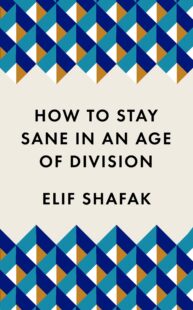
Recommended by Gaby, this quick and thought provoking read calls for “humanism over tribalism” during this age of information overload and echo chambers. Written during the pandemic, this is a timely essay reflecting on political and cultural divides and how we must respond to one another thoughtfully and embrace empathy to create a better world. Gaby plans to read this again to fully absorb all of the information and insightful commentary.
Donut Economics: Seven Ways to Think Like a 21st-Century Economist by Kate Raworth
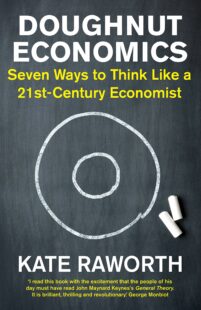
Recommended and thoroughly enjoyed by Mais, this book analyzes why pure economy doesn’t work in this century, and how measuring a nations wealth in GDP is not accurate. After deciding that the economics she learned at university is flawed, Raworth posits that economists should try to find balance between citizens well-being and GDP. Of particular interest is Raworth’s discussion of the economic contributions and unpaid work of women caring for families, referred to as “invisible economy”. There is an urgent need for the radical restructuring of the worlds economy and this book strives to explain why.
If you’re looking to pick up some interesting reads for yourself, GWL is delighted to be able to start lending books again with our new ‘Select and Collect’ service.
Request up to 6 books in advance, and we’ll have them ready for you to pick up. Or, if you’re not sure where to start, we can select some titles or make up a “book bundle” for you. Click here to find out more!

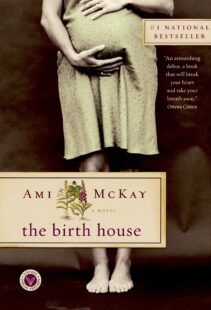
Comments are closed.